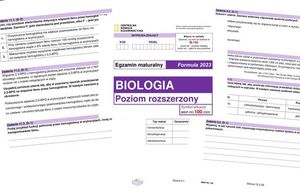The Eurovision Song Contest is back, and with it comes a whirlwind of excitement, anticipation, and a dash of culinary creativity. As the annual event unfolds, the latest episode of the Switched On Pop podcast dives into the rich tapestry of songs and performances expected to shine this year. Released on May 7, 2025, Episode 415 features a delightful mix of Swedish songs celebrating the healing powers of the sauna, soaring operatic entries from Austria, and a variety of food-themed tunes, including the standout track from Estonia’s Tommy Cash, titled "Espresso Macchiato."
Eurovision has long been a cornerstone of European culture, especially in mainland Europe, where its vibrant performances and diverse entries draw millions of viewers each year. The anticipation surrounding the contest remains palpable, as artists strive to make a lasting impression on judges and audiences alike. With the competition heating up, it’s essential to look back at some of the most unexpected winners and notable losers in the event's storied history.
Among the most significant victories in Eurovision history is Norway's Alexander Rybak, who won in 2009 with his catchy tune "Fairytale." Rybak’s performance remains iconic, having scored a staggering 387 points, which was a remarkable 169 points ahead of Iceland's entry. This win set a record for the largest margin in Eurovision history, a feat that has yet to be surpassed in the 15 years since.
Portugal’s Salvador Sobral made history in 2017 with his heartfelt ballad "Amar pelos dois," which captivated audiences and judges alike. Sobral earned an impressive 758 points, finishing 143 points ahead of Bulgaria’s "Beautiful Mess" by Kristian Kostov. This victory was particularly significant as it marked Portugal’s first win in the competition, breaking several records, including the highest score under the new voting system.
Sweden has also made its mark in Eurovision history, with Loreen's powerful performance of "Euphoria" in 2012 earning her a total of 372 points, outpacing Russia’s entry by 113 points. This win solidified Loreen's status as a Eurovision legend. Another notable Swedish victory came in 2015 when Måns Zelmerlöw captured hearts with his visually stunning performance of "Heroes," scoring 365 points and securing a 62-point lead over Russia.
Ukraine's Ruslana brought home her country's first Eurovision trophy in 2004 with her energetic track "Wild Dances." She won with 280 points, finishing 17 points ahead of Serbia and Montenegro, a significant achievement in the pre-televote era.
While some victories are marked by commanding leads, others are decided by razor-thin margins. In 2016, Ukraine's Jamala won with her politically charged song "1944," scoring 534 points and beating Australia’s Dami Im by just 23 points. The introduction of the combined jury and televote system added an extra layer of suspense to the competition.
Similarly, Denmark’s Emmelie de Forest clinched victory in 2013 with her emotional song "Only Teardrops," scoring 281 points, only 47 points ahead of Azerbaijan. The tension during the voting process kept fans on the edge of their seats.
In a remarkable twist, Loreen made history again in 2023 by becoming the second artist to win Eurovision twice with her song "Tattoo." This time, she edged out Finland’s Käärijä by a mere 57 points, despite Käärijä winning the public televote. This narrow margin sparked intense discussions among fans about the influence of the jury in the competition.
The split voting system introduced in recent years has led to some of the most controversial moments in Eurovision history. For instance, in 2015, Italy’s Il Volo dominated the televote with their operatic anthem "Grande Amore," but their lower jury ranking placed them third overall. Similarly, Käärijä's wild performance in 2023 topped the public vote, yet he lost to Loreen due to the jury's scoring system.
Notably, Croatia’s entry led the televote in 2024 but ultimately lost to Switzerland, which secured victory through a dominant jury score. This trend of jury favorites and televote losers has created a dynamic that continues to intrigue audiences.
Austria's César Sampson won the jury vote in 2018 but fell short in the public vote, finishing third overall. Meanwhile, Australia’s Dami Im, despite her stunning performance in 2016, placed second overall after losing the public vote to Ukraine’s Jamala.
Sweden’s John Lundvik faced a similar fate in 2019, topping the jury vote but finishing fifth due to lower televote support. These examples highlight the growing divide between expert opinion and popular preference.
Eurovision is also known for its unexpected upsets, where pre-final odds don’t always reflect the outcome. Azerbaijan's Ell & Nikki won in 2011 with "Running Scared," a performance that surprised many, as they were not considered strong contenders leading up to the final. Their duet resonated widely, earning them 221 points and delivering Azerbaijan its first Eurovision trophy.
Salvador Sobral’s 2017 win was another shocker, as he was not expected to perform so well. His minimalist ballad stunned audiences, resulting in Portugal’s first-ever Eurovision victory by a record-breaking margin. Similarly, Conchita Wurst’s powerful performance of "Rise Like a Phoenix" in 2014 was seen as a long shot, but her stunning vocals captured the hearts of both juries and viewers, leading to an unexpected win for Austria.
As the Eurovision Song Contest continues to evolve, it remains a celebration of talent and cultural expression, bringing together diverse musical styles and performances. With millions tuning in each year, the excitement surrounding the contest is as high as ever. The latest episode of Switched On Pop offers a glimpse into this year’s competition, showcasing the creativity and uniqueness that Eurovision has to offer.
As fans eagerly await the upcoming performances, one thing is clear: Eurovision is not just a music competition; it’s a celebration of culture, creativity, and the unexpected moments that make it truly unforgettable.




